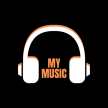Overcoming Writer's Block: Tried and True Methods for Every Writer
Writer's block can be a formidable foe, but it doesn't have to derail your writing journey.

Writer's block can be a formidable foe, but it doesn't have to derail your writing journey. It often appears at the most inconvenient times, leaving you staring at a blank page with no idea how to proceed. Whether you're crafting a novel, a blog post, or a research paper, writer's block can strike any writer at any time. However, there are tried and true methods that writers have used for generations to overcome this challenge. In this article, we'll delve into these time-tested strategies to conquer writer's block and reignite your passion for writing. With persistence and the right techniques, you can transform this obstacle into an opportunity for growth and creativity.
Morning Pages:
Morning pages are a concept popularized by Julia Cameron in her book "The Artist's Way." This technique involves writing three pages of stream-of-consciousness thoughts first thing in the morning. The idea is to clear your mind of any clutter and allow your creativity to flow freely. Morning pages are not meant to be edited or shared; they're a private space for you to explore your thoughts and ideas. By making this a daily practice, you can overcome mental blocks and tap into a deeper level of creativity. Many writers find that morning pages help them generate new ideas and gain clarity on their projects.
Read Aloud:
Reading your work aloud can help you see it from a different perspective. This technique can highlight awkward sentences, repetitive phrases, and areas that need more detail. When you read your work silently, it's easy to miss these issues because your brain automatically fills in gaps and corrects mistakes. Reading aloud forces you to slow down and engage with your writing on a deeper level. It also helps you hear the rhythm and flow of your prose, making it easier to identify and fix any problems. This practice can be especially helpful when you're editing a draft or trying to break through a particularly stubborn block.
Write by Hand:
The tactile experience of writing by hand can stimulate creativity in ways that typing on a computer cannot. Handwriting can slow down your thought process, allowing you to think more deeply about your words and ideas. It also engages different parts of your brain, which can lead to new insights and perspectives. Many writers find that switching to pen and paper helps them overcome blocks and connect more intimately with their work. Additionally, writing by hand can reduce distractions, as you're less likely to be interrupted by notifications or tempted to browse the internet.
Change Formats:
If you're stuck in one format, try switching to another. For example, if you're working on a novel, try writing a short story or a poem. If you're writing an article, try drafting a dialogue or a letter. Changing formats can refresh your creativity and provide new insights into your work. It can also help you break free from rigid structures and explore different ways of expressing your ideas. This flexibility can be particularly useful when you're feeling constrained by the expectations of a particular genre or form.
Use Writing Software:
Writing software like Scrivener, Evernote, or Ulysses can help you organize your thoughts and drafts more effectively. These tools offer features like outlining, note-taking, and distraction-free writing modes that can enhance your productivity and creativity. For example, Scrivener allows you to break your project into smaller sections, making it easier to manage and navigate. Evernote is great for capturing ideas on the go and syncing them across devices. Ulysses combines a clean writing interface with powerful organizational tools. Experiment with different software to find the one that best suits your needs and helps you overcome writer's block.
Set Writing Prompts:
Writing prompts can serve as a starting point and spark new ideas. Prompts can be anything from a single word to a detailed scenario. They provide a framework that can help you focus and get started, even when you're feeling stuck. You can find prompts online, in writing books, or create your own based on your interests and experiences. Try setting a timer for 10-15 minutes and writing without stopping or editing. This exercise can help you bypass your internal critic and unlock new creative possibilities. Writing prompts are especially useful for warming up before tackling a larger project or when you need a break from your current work.
Write Backwards:
Start with the conclusion or a key scene and work your way back to the beginning. This approach can reduce the pressure of starting with a perfect introduction and help you maintain momentum. Writing backwards forces you to think about your story or argument from a different angle, which can reveal new connections and insights. It can also help you clarify your main points and ensure that your writing builds logically toward a satisfying conclusion. This technique can be particularly effective when you're struggling to find a clear starting point or when your progress has stalled.
Eliminate Distractions:
Use apps like Freedom, StayFocusd, or Cold Turkey to block distracting websites and apps while you write. Create a focused writing environment by minimizing interruptions and setting clear boundaries with others. A clutter-free workspace can also help you concentrate better. Consider using noise-canceling headphones or white noise apps to create a more conducive writing environment. Eliminating distractions allows you to fully immerse yourself in your writing and maintain a state of flow. It also helps you make the most of your writing time, reducing the likelihood of procrastination and frustration.
Seek Feedback:
Getting constructive criticism from others can provide new insights and motivate you to keep going. Join a writing group, attend workshops, or find a trusted friend or mentor who can offer honest feedback on your work. Sharing your writing with others can be intimidating, but it can also be incredibly rewarding. Constructive feedback can help you see your work from a different perspective and identify areas for improvement. It can also provide validation and encouragement, reminding you that you're not alone in your creative struggles.
Celebrate Small Wins:
Acknowledge and celebrate your progress, no matter how small. Writing is a journey, and every step forward is worth celebrating. Set achievable goals and reward yourself for meeting them. This could be something simple like enjoying a favorite treat, taking a break to relax, or spending time with loved ones. Celebrating small wins can boost your motivation and confidence, making it easier to stay focused and productive. It also helps you maintain a positive mindset and appreciate the process of writing, rather than just the end result.
Conclusion:
Writer's block may be a common challenge, but with these tried and true methods, you can overcome it and continue to produce meaningful work. Remember, persistence is key, and every writer faces this challenge at some point. By incorporating these techniques into your writing routine, you can break through blocks, reignite your creativity, and enjoy the writing process once again. Don't be afraid to experiment with different methods and find what works best for you. Writing is a journey, and overcoming writer's block is part of that journey. Embrace the challenge and use it as an opportunity to grow and improve as a writer.
About the Creator
Enjoyed the story? Support the Creator.
Subscribe for free to receive all their stories in your feed. You could also pledge your support or give them a one-off tip, letting them know you appreciate their work.






Comments
There are no comments for this story
Be the first to respond and start the conversation.